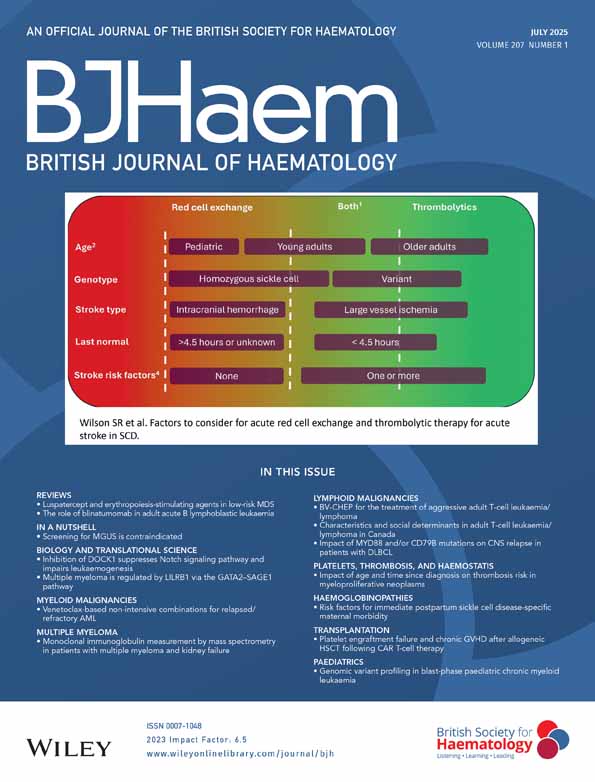Allogeneic haematopoietic stem cell transplantation for the treatment of adult T-cell leukaemia/lymphoma
Abstract
Summary. The feasibility of allogeneic haematopoietic stem-cell transplantation (allo-HSCT) in 11 patients with adult T-cell leukaemia/lymphoma (ATL) (6 acute, 4 lymphoma, 1 chronic type) was evaluated. The preparative regimens (9 conventional, 2 reduced-intensity) were tolerable. Five patients developed acute graft-versus-host disease (GVHD), and three, extensive chronic GVHD. All 10 patients who survived > 30 d achieved complete remission. Estimated 1-year overall and disease-free survival rates were 53 ± 30% and 45 ± 29% respectively. Four patients remain alive and disease-free at a median follow-up of 25 months. The others died of transplantation-related complications. This pilot study suggests that allo-HSCT in ATL should be evaluated further.




